Qusai's Story
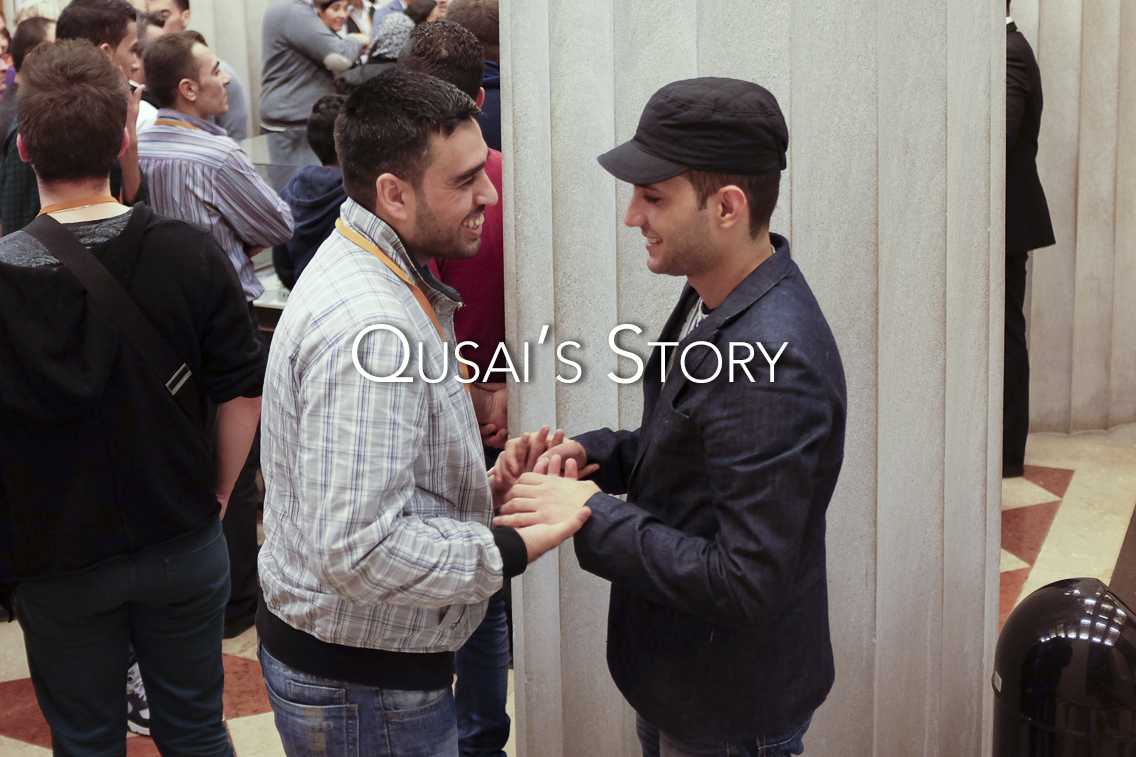
Qusai was the first asylum seeker in Köflach, a city in southern Austria just shy of 10,000 inhabitants located up the valley from the city of Graz, quietly nestled in Eastern Alps. Formerly a coal and industry town, the once bustling city is home mostly to young families and elderly people – and at one time, more than 200 asylum seekers. Qusai, an Iraqi Asylum seeker who has lived there since early 2015 has become accustomed to life in Köflach, although it was something of an adjustment after leaving his home city of well over eight million inhabitants. He calls himself “the Bürgermeister”, or the mayor of the small town because he seems to know everyone, and has flourished as a member of the community with more friends than he can count.
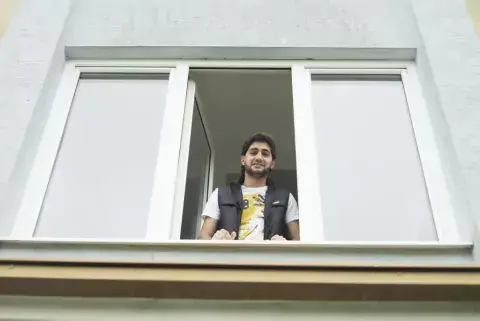
Qusai arrived in Austria in December 2014 after leaving Baghdad in July of that year. He travelled through Istanbul, Albania, Montenegro, Serbia, Hungary and finally to Austria via taxi, foot and even a tractor. He spent some time in Traiskirchen, then in Linz before he moved to Köflach.
“At first it was very difficult. I thought that I couldn’t live here, but now I can’t leave Köflach. I love it – the nature, the peace and quiet
When he first moved to Köflach, Qusai had no German language abilities, and knew very little about Austria. He’s since mastered the language, but when he arrived it was only through a bit of English and other more unorthodox methods of communication that he was able to interact with his neighbours, with whom he eventually became fast friends.
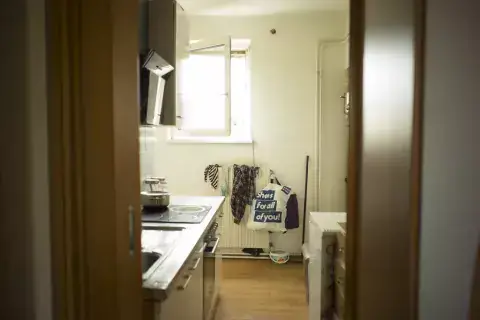
Qusai’s flat is simple, but cozy. He received most of the furniture as gifts, but also purchased some of it. It was furnished only with a table in it when he arrived.
Qusai dedicated himself to learning German, and with the support of his friends, made quick work of mastering the difficult language, which has helped him span the tenuous gap between himself and the residents of Köflach. He can now be found, almost daily, out and about in the city helping out his neighbours and visiting his friends – both Austrians and asylum-seekers. He can hardly go out without running into someone whose life he has touched in some way.
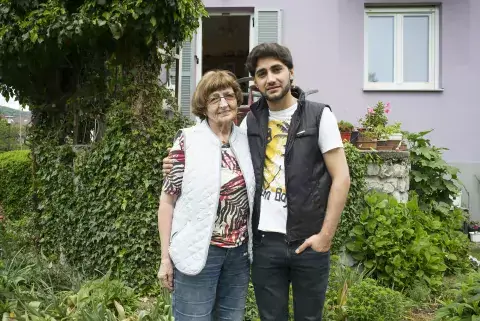
Qusai poses with his neighbour in the garden he has helped her cultivate. He has often assisted his neighbours with things like gardening, housework or anything they might need – even if it’s just conversation.
“On the street there are lots of older people that are lonely, and I always help them in the garden or around the house, help carry something, or just talk.”
Qusai left behind a family, who he has not seen since late 2014, as well as a house and a successful career because his life was in danger. He is still waiting on the status of his application for asylum in Austria, and hopes one day to send for his wife and two children who are still in danger in Baghdad.
“I had everything in Baghdad,” he reflects. “We had a good life.”
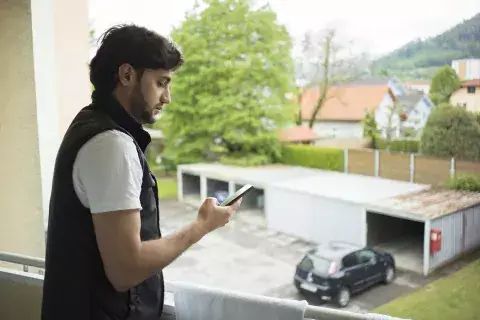
Qusai talks every day with his wife and family, who just want to hear for a date on which they can join him in Austria, but struggles because he has no answers for them. He’s done everything he can.
Despite these challenges, he has become an example of the transformative power of dialogue in his community where there are still some people that disagree with the presence of asylum seekers.
“There are a lot of people that don’t like asylum seekers and bad mouth us,” he says. “I wish that they would just come to me, face-to-face and say, ‘let’s just talk’.”
He’s taken it on himself to engage people, and it’s worked. For example, one individual was denouncing asylum seekers on social media, but had had little exposure to them. One evening, Qusai happened to meet him at a local establishment and took advantage of the opportunity to engage with him. Although the individual was reluctant at first, Qusai shared his story with an open heart and was able to exchange mobile phone numbers and laid the groundwork for future dialogue.
“Dialogue is really important,” he concluded.
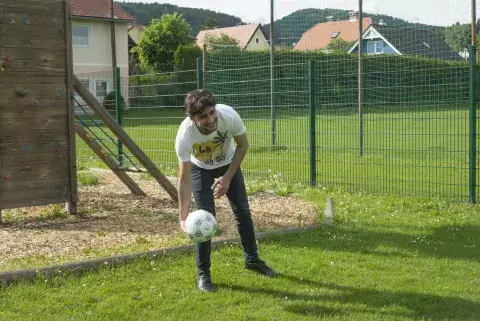
Qusai plays football with a young asylum seeker on a sunny day in a park. If he receives a positive response to his asylum application, he will send for his family and settle permanently in Köflach.
In the meantime, he’s getting his driver’s license, working out, spending time hiking, and he likes to swim. He worries about his family daily, but once in a while affords himself time to get his mind off things.
“In Köflach, we have the mountains, nature, fresh air – everything that you need. You can really breathe.”